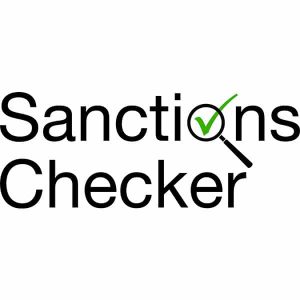As the UK prepares for a future outside of the EU, one of the areas financial services companies have to consider is sanctions. As of 11pm on the 31st December 2020, the UK will no longer be subject to EU sanctions.
It will also mark the introduction of the UK’s sanction regime, the Sanctions and Anti-Money Laundering Act 2018 (the Sanctions Act). There is of course a lot of uncertainty surrounding much of the post-Brexit world, but what can UK financial services organisations do to prepare for this new reality?
What will the change mean?
Things will be essentially the same, but different. As the transition period comes to an end the UK sanctions list will be introduced. It is a comprehensive list of persons, entities or ships designated under sanctions regimes that companies are restricted from dealing with.
This updated sanction list will comprise of the designations which the UK has chosen to carry over from the EU regimes, as well as those that the UK is obliged to implement under UN regimes. The Sanctions and Anti-Money Laundering Act 2018 will consist of a consolidated list of financial sanctions of those subject to asset freezes and a separate list for those subject to restrictions on financial markets and services.
So, although many of the lists will remain the same it will be crucial for companies to carry on their sanction checks to ensure that they remain in-line with the various sanctions acts that are relevant to them.
Why is this important?
Sanctions violations are on the rise and the fines can be large. The Office of Financial Sanctions Implementation (OFSI) revealed a record number of 140 voluntary disclosures of potential sanctions violations related to transactions worth a total of £982 million between April 2019 and March 2020. In the same period between 2018 and 2019 there were 99 reports related to transactions worth a total of £262 million.
The voluntary disclosures came mainly from the banking and financial sectors and on 31st March 2020 the OFSI announced it had imposed a £20.47 million fine on Standard Chartered Bank. Other sectors making voluntary disclosures are insurance, charity, travel and legal.
It is therefore crucial that companies understand any changes in their current sanction checks. All financial organisations are required to screen their new and existing clients against financial sanctions lists on an ongoing basis, and despite the changes, authorities are going to be closely checking to ensure adherence.
What should UK companies do to maintain effective sanctions checks?
The new UK Sanctions List and OFSI Consolidated Lists should be used for sanctions screening from 1st January 2021, so organisations need to ensure that their systems and processes are updated to include these lists. As there are likely to be some changes, re-screening of previously screened entities/individuals/vessels should be completed against the new lists.
For those companies working with EU businesses, there is also an EU-specific consolidated sanctions list maintained by the European Commission that should also be used for sanctions screening alongside the UK lists.

How Northdoor’s Sanctions Checker software can help you stay ahead
For companies dealing with multiple organisations in multiple countries, being able to easily check that lists are constantly maintained for adherence against the various sanctions regulations is important to avoid falling foul of current rules. Manually checking such multiple, large and consistently updating lists is an almost impossible task, and so implementing automated solutions is the best way of ensuring adherence.
Northdoor’s Sanctions Checker solution provides an easy-to-use and powerful system that enables organisations to check their clients against current international financial sanctions lists on an ongoing basis. Sanctions Checker provides a fully automated approach which means organisations can be confident of adherence to all updated sanctions lists.
Click here to read an overview of how the Sanctions Checker solution works.
There is going to be much uncertainty over the coming weeks and months, but one thing we can conclude for certain is that robust and accurate sanctions checks are going to be more relevant than ever. All authorities are going to be taking a closer look at who financial organisations are doing business with – and whether they are in-line with current sanctions.
By implementing a robust and automated solution, companies can be confident that their sanctions lists are updated and in-line with regional regulations. Failure to adhere could see companies face substantial fines and a huge impact on their reputation.
For a demonstration of Sanctions Checker, more help and advice on sanctions checking, anti money-laundering regulations and how automation can help – contact the Northdoor applications team by calling: 020 7448 8500, or email: info@northdoor.co.uk